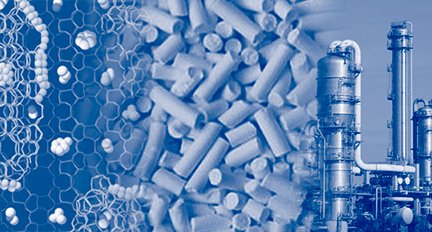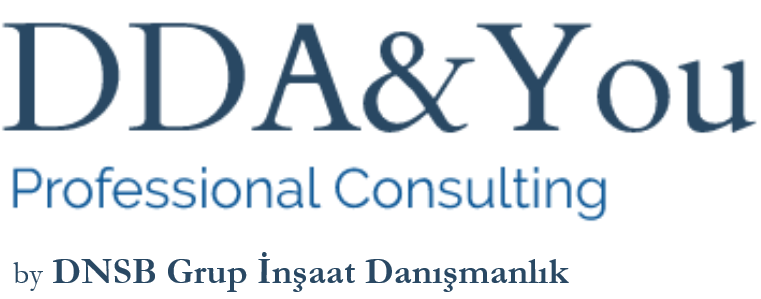Catalyst and Chemical Selection
Catalyst are one of the most important part of the refinery and petrochemical industries operation and with the appropriate selection of the catalyst, refineries can increase their profits enormously and improve the operation in every sense too.
The main purpose of the catalyst selection should be the maximization of profit from the unit and refinery in a sustainable manner, not the keeping the operation as it is without having any changes. As it is known, all the refineries, even though it is not admitted, are very conservative and usually prefers to use the catalyst that they already know, or they are already using.
Every change in the catalyst batch, irrespective of the unit, should be considered and treated as an opportunity to improve the profit and operation of the unit even if the refinery is satisfied with the performance of the catalyst used already. The opposite is usually, if not always, result with a big opportunity cost.

With the selection of right catalyst, the followings may be realised with the result of profit maximization;
- Yield improvement,
- Increase in throughput,
- Energy savings,
- Improvement of cycle length, if a necessity,
The selection is not straight forward and should be specific to units and refinery conditions.
The main steps for selection are,
- Defining the Catalyst Supplier List,
- Writing Technical Specification,
- Opening and Collecting the bids,
- Technical and Economical evaluations,
- Selection of the Supplier
Some notes on catalyst selection;
- One important thing to remember, the cost of the catalyst is usually just the supplementary evaluation parameter for the selection of the catalyst. The cost differences between the catalyst (s) are usually not comparable with the differences in earnings that can be generated using catalyst(s). It is not wrong to say that the ones who are selecting the catalyst based on the catalyst cost are selecting the wrong catalyst and having large opportunity cost,
- Consider the catalyst suppliers as the partner of the refinery and be open as much as possible,
- Ask always alternatives from the suppliers for the catalyst, to select the best. No catalyst supplier can make the selection better than the owner of the unit,
- Define more than one feedstock by considering the opportunities in operation,
- Refineries are usually hesitating to be the first on the use of the new catalyst, but to be the first may also bring a big advantage on the competition, the one who decide should compare the possible revenues with the risk associated with the use of new catalyst. A change management procedure should be applied to assess the risk. This is better to do for all change outs with the help from the licensor,
- Don’t rely on the catholic dogma’s and revisit all the known/generalised facts about the catalyst in question,
For example, minimization of hydrogen consumption for all kind of hydrotreating/hydrocracking applications targeted for diesel product, as it is one of the most expensive utility to be used, is not always the correct target to have. High hydrogen consumption on the other side may means, high volume swell on the main product and it can create a big margin in the range of 10-20 USD/ton of diesel,
- The important parameters for the catalyst are, activity, stability (expressed as catalyst cycle length), selectivity and mechanical strengths but they are not comparable, and you cannot compare the selectivity with the activity so, an economical parameter such as IRR, NPV should be selected as the criterion for the evaluation, as it combines all the parameters stated above in terms of profit.

As the Company we are happy to give the services as you wish on;
- Writing Technical Specification,
- Opening and Collecting the bids,
- Technical and Economical evaluations,
- Recommendation on the selection
It is not necessary to have Services above all together. Depending on the requirements of the client all of them or some of them can be served. Beside this if asked laboratory tests may also be organised.
Writing Technical Specifications:
The process starts with the effective day of the contract and be finalised within approximately 15 workdays excluding the time spent for visits, provided that all the information required are final and received by the Company.
Upon the execution of the contract for the appropriate services, a questionnaire to be fulfilled will be sent to client (can be sent in advance too) The Questionnaire will include all the information required to complete the Technical specification.
The Technical specification will include the following sections;
- Introduction, by client

- Requirements and Target(s), by client- If requested by client the Company can recommend what should be the requirements,
- Feed definition with alternatives,
- Product Performance Guarantees and Penalties, by clients- If requested the Company can recommend the performance guarantees and accompanying penalties
- Technical services by catalyst suppliers, by clients- if required The Company can recommend
- Performance test(s) to be done
- Unit definitions and operational parameters, limits etc- by client- a list is given in n the form of questionnaire
- Special Conditions, by clients(s)
Opening and Collecting the Bids:
If requested by the Client, The Company can invite the companies to provide their offers too. But this is recommended to be done by the Client himself.
Technical and Economical Evaluations:
The process starts with the effective day of the contract, after all the bids and other correspondences are received by The Company.
If required, all additional correspondences with the vendors shall be carried out by the Company. All this correspondence shall be copied with the client.
At the end of the process, after all the information are completed with the correspondences, the company will prepare an evaluation table for comparison off all the bids in accordance with the requirements of the Technical specification.
In addition, if requested by the Client, The Company shall prepare an economical evaluation for the bids. This economical evaluation shall be based on the parameters like IRR, NPV, Payback period, Capitalised cost for all the bids.
For this economical evaluation, the client shall be providing the prices of the products from the unit where the catalyst is loaded, prices of raw materials and utility costs (hydrogen,electricity, steam and fuel and CW)
If asked these evaluations can be done for a set of prices (up to 4 separate set).
The result shall be introduced in the form of report, coincide and clear forms of tables all the guarantees shall be given by the catalyst supplier.
The only guarantee to be given by The Company shall be the timely completion of the report. In case of any missing, fault by The Company, The Company shall revise all with no charge.
The owner of the Company has more than 20 yrs. of experience for the selection of catalyst for, Hydrocrackers, Desulphurisation (both low and high severity), CCR Reformers, Isomerisation, Semi Regen Reformers, etc. Also have an experience with all the major catalyst suppliers such as UOP, Criterions, Axens, Haldor Topsoe, Sudchemie, Johnson Mathey.
Please see “About me” section for some of the references.
